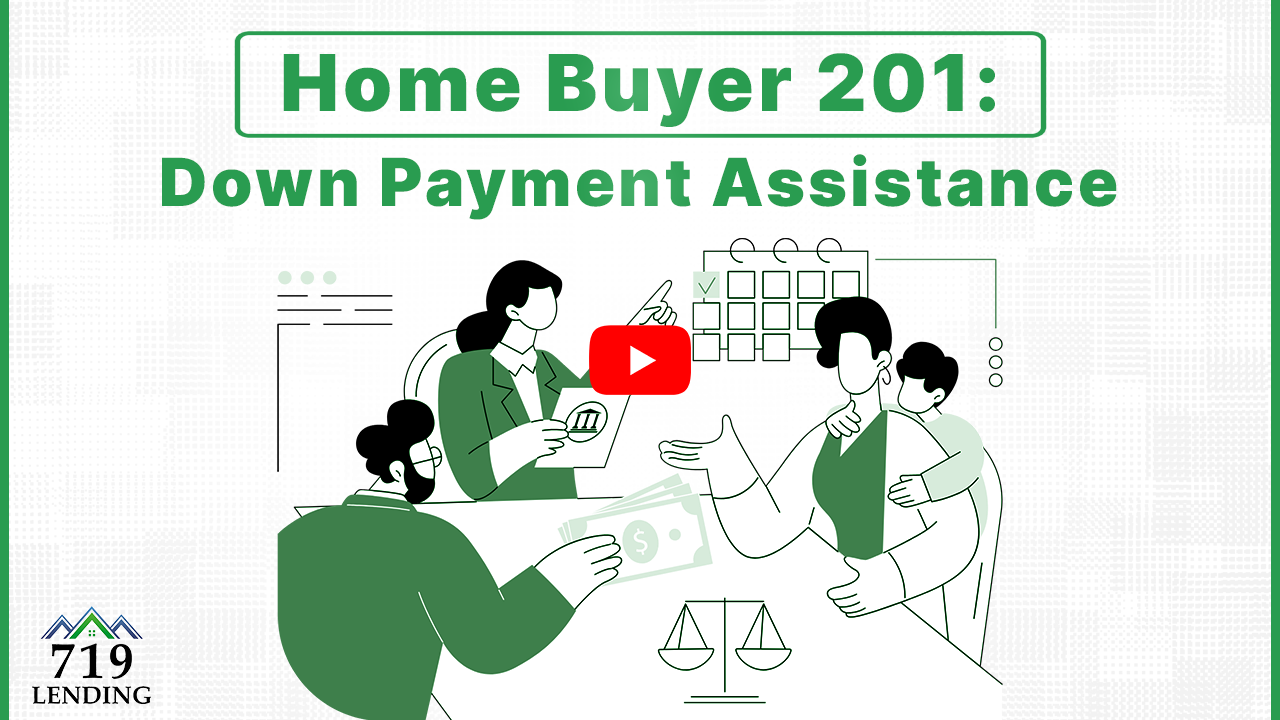6 minute lesson Lesson Summary Importance of timely document submission for your loan Types of…
Homebuyer 201: Mortgage Trigger Leads
Lesson Summary
- Mortgage Trigger Leads: When you apply for a mortgage, your credit inquiry can trigger lenders and other financial institutions to receive a notification. This makes you a “trigger lead.”
- Purpose: These leads are used by companies to offer competing mortgage rates or financial products.
- Privacy Concerns: Your personal information is shared without explicit consent, leading to unsolicited marketing calls or offers.
- Opting Out: You can opt out of such communications by registering with the National Do Not Call Registry or using credit bureaus’ opt-out services.
Credit inquiries can open unexpected floodgates.
Much like a beacon lights up the sky, your mortgage application highlights your intent to numerous lenders.
When your credit report is accessed for a mortgage, it acts as a ‘trigger’—prompting credit bureaus to sell this event as a lead to various competing mortgage entities eager to present you with their offers.
Welcome to mortgage trigger leads.
Understanding Mortgage Trigger Leads
As you delve into the journey of securing a home loan, you may unwittingly become the focus of aggressive marketing campaigns. This phenomenon starts the moment your credit score is queried; it serves as a catalyst for what’s known as mortgage trigger leads. These are essentially notifications sent out to a network of lenders, alerting them that you’re in the market for a mortgage. In turn, they may seize this opportunity to reach out with loan proposals, trying to sway your decision before you commit to a lender. While their promptness can sometimes be helpful, it often leads to an overwhelming avalanche of options and calls.
Defining Trigger Leads in Home Loans
When you apply for a home loan, a credit inquiry unlocks a marketing gateway for lenders. This is the inception of the trigger lead process.
Trigger leads are the sale of your mortgage inquiry information by credit bureaus to lenders who, in turn, try to solicit your business aggressively.
Trigger leads often result in a barrage of loan offers.
To navigate this onslaught: know your rights, opt out early, and maintain open communication with your chosen loan officer for a more tranquil homebuying voyage.
The Credit Inquiry Ripple Effect
When your credit is pulled, it’s akin to skipping a stone across the water—the ripples spread.
- Credit Bureaus Notify Lenders: Once your inquiry hits, credit bureaus alert participating lenders almost instantaneously.
- Lenders React Quickly: Motivated by the trigger lead, lenders may swiftly initiate contact, inundating you with offers.
- Non-Stop Communications Ensue: Your contact information becomes a hot commodity, potentially leading to relentless phone calls and emails.
Avoiding excessive solicitations requires preemptive action and timely measures.
By opting out, you reduce the barrage of unwanted lender communications effectively.
How Lenders Access Your Score
When you apply for a mortgage, credit bureaus are alerted to your credit inquiry, initiating a cascade of events. Authorized lenders receive notification of these inquiries, given statutory rights to access credit data.
Lenders then examine your credit score and history, assessing your loan eligibility. Based on their evaluation, they decide whether to reach out to you.
Upon receiving your inquiry information, these lenders may use sophisticated analytics to tailor their offerings. They seek to present attractive loan options that align with your apparent credit profile, vying for your patronage.
The targeted communication from lenders is not random but based on calculated screening and selection. They utilize trigger leads to identify potential customers, and if you don’t preemptively opt-out, your information could circulate among various financial institutions. To prevent these disruptions and maintain privacy, proactive measures such as opting out are essential. This step, while it might not shield you completely, dramatically reduces the volume and frequency of lender inquiries.
The Impact on Homebuyers
Trigger leads can overwhelm buyers with unsolicited loan offers, cluttering their decision-making process.
In the bustling real estate market of Colorado Springs, homebuyers are already navigating complex terrain. The addition of numerous lenders reaching out due to trigger leads can lead to confusion and stress, as well as potentially less favorable loan terms.
Opting out through official channels can spare homeowners the barrage of calls, preserving their peace of mind during the homebuying journey.
Privacy Concerns and Incessant Calls
The issue of privacy is significant when it comes to your credit being pulled for a home loan. Suddenly, your personal financial situation becomes a hot commodity for lenders, peppering your daily routine with offers.
Being subject to relentless marketing calls can quickly become overwhelming. It’s an intrusion that many people find disconcerting.
Every time your credit report is triggered, it can open the floodgates to a slew of phone calls from various mortgage companies vying for your business. This not only disrupts your day-to-day life but can also lead to a sense of distrust in the process, as your information is traded among these institutions.
To rest easy and keep your personal information more private, taking preemptive action is key. Opting out from these trigger leads through the appropriate channels can help you maintain control. In a matter of days, you can significantly reduce the unwanted calls, creating a quieter, less stressful atmosphere as you navigate your home purchase. With this safeguard in place, you’re able to focus on finding the perfect home without the constant interruption of unsolicited loan offers.
Predicting Your Mortgage Shopping Behavior
Cognitive algorithms meet consumer credit profiles.
Financial institutions now leverage sophisticated models to examine and predict mortgage shopping patterns. These models tap into a wealth of historical data, ranging from credit scores to purchasing histories, allowing them to identify potential mortgage shoppers with uncanny precision. Consequently, trigger leads can be the unwanted byproduct of these predictive efforts.
Trigger leads come with a cost—the cost of privacy.
Entering the mortgage-seeking fray requires caution; every credit check sparks interest. It’s like sending up a flare to lenders that you’re exploring your options—a signal leveraged through trigger leads.
The repercussions of this predictive outreach aren’t always obvious. Yet, they are profoundly influential in shaping your mortgage-shopping experience. Behind the scenes, these analytics hone in on potential borrowers, tailoring aggressive marketing strategies that could sway your decision-making process. This anticipation of behavior becomes a powerful tool in a lender’s arsenal come the strategic 2023 mortgage season. By understanding how trigger leads work, consumers can better manage their exposure to these tactics and mitigate the relentless barrage of offers.
Opting Out of Unsolicited Offers
Navigating the home loan landscape means evading endless unsolicited calls from eager lenders. Trigger leads make your quest for privacy a challenging one.
To assert control, you can use readily available tools to shield yourself from invasive sales pitches. OptOutPrescreen.com and calling 1-888-5-OPT-OUT offer an escape from the relentless marketing ambush.
Deploying these opt-out mechanisms is a strategic move to safeguard your serenity while exploring mortgage options.
The Role of OptOutPrescreen.com
OptOutPrescreen.com serves as a beacon of privacy, shielding consumers from the onslaught of unsolicited credit and insurance offers. It operates by allowing individuals to remove themselves from lists that credit bureaus sell to lenders.
This portal effectively reduces marketing calls when you’re in the delicate process of mortgage shopping.
By using OptOutPrescreen.com, one can signal to credit bureaus their desire to stay under the radar of lenders’ targeted campaigns. It’s a step toward regaining control over who contacts you.
Once you’ve initiated this opt-out procedure, credit bureaus are obligated to stop sharing your information, diminishing the frequency of unwanted inquiries. It’s not an overnight solution, but a progressive one.
While OptOutPrescreen.com can’t retroactively erase your details from lists previously sold, it certainly curtails future instances of data exchange. Remember, these services need time to effectively pull your information out of the marketing ecosystem.
Ultimately, the role of OptOutPrescreen.com can’t be understated for a homebuyer’s peace of mind. It’s a valuable tool to combat invasive marketing and assert a stronger hold over your personal information.
Steps to Enact the Do Not Call List
First, navigate to OptOutPrescreen.com, a centralized service designed to stop unsolicited offers, including those trigger leads that can flood your phone with calls from eager lenders after a credit check.
Opting out is straightforward and doesn’t require extensive paperwork or processes; simply use their online system.
Next, enter your personal information carefully and accurately to ensure the system correctly processes your opt-out request. Errors could lead to ineffective opt-out.
Review your submission before finalizing to verify all details are correct. Any mistake here could prolong your exposure to unwanted calls and offers.
Once you’ve submitted your opt-out request, mark your calendar. It typically takes up to 10 days for your status to change in the system, which means patience is paramount during this waiting period.
Finally, if you prefer a more direct approach, dial 888-567-8688. This call will lead you through the same opt-out process, albeit with an auditory guide, confirming your request with instant feedback.
Proactive Credit Management
Maintaining control over when and how your credit information is used is pivotal to a tranquil home loan experience. This extends beyond simply averting unwanted calls; it safeguards your personal data from overexposure. By choosing when to have your credit pulled, you retain the reins, ensuring that only selected, trusted lenders access your sensitive information.
Taking action by opting out of trigger leads is akin to setting up a personal credit defense system. It’s a preventative measure, much like a firewall, designed to block an array of intrusive inquiries, preserving the sanctity of your credit report. Remember that while opting out is an effective step, it’s also crucial to monitor your credit regularly. This proactive approach allows you to catch and address any irregularities quickly, maintaining a robust credit profile that’s attractive to lenders.
Timing Your Opt-Out Strategically
Start the opt-out process well before you apply for a mortgage to prevent unwanted distractions.
- Review Your Home Buying Timeline to determine when you’ll likely apply for loans.
- Opt Out Early, ideally a month ahead, to ensure the block is effective.
- Monitor Your Credit post-opt-out to verify that no unsolicited inquiries occur.
- Confirm Opt-Out Status by checking for a reduction in credit-related solicitations.
By opting out in advance, you’ll mitigate the risk of last-minute loan shopping stress.
Taking control early in the game sets a tranquil pace for your home buying journey.
Working with Your Loan Officer
Effective collaboration with your loan officer is essential for a smooth mortgage process.
- Prepare Your Documentation thoroughly before your first meeting.
- Communicate Openly regarding your budget, expectations, and any concerns.
- Be Responsive to requests for additional information or paperwork.
Adherence to these steps will optimize the efficiency of your application.
Honesty with your loan officer is the bedrock of a favorable mortgage experience.



